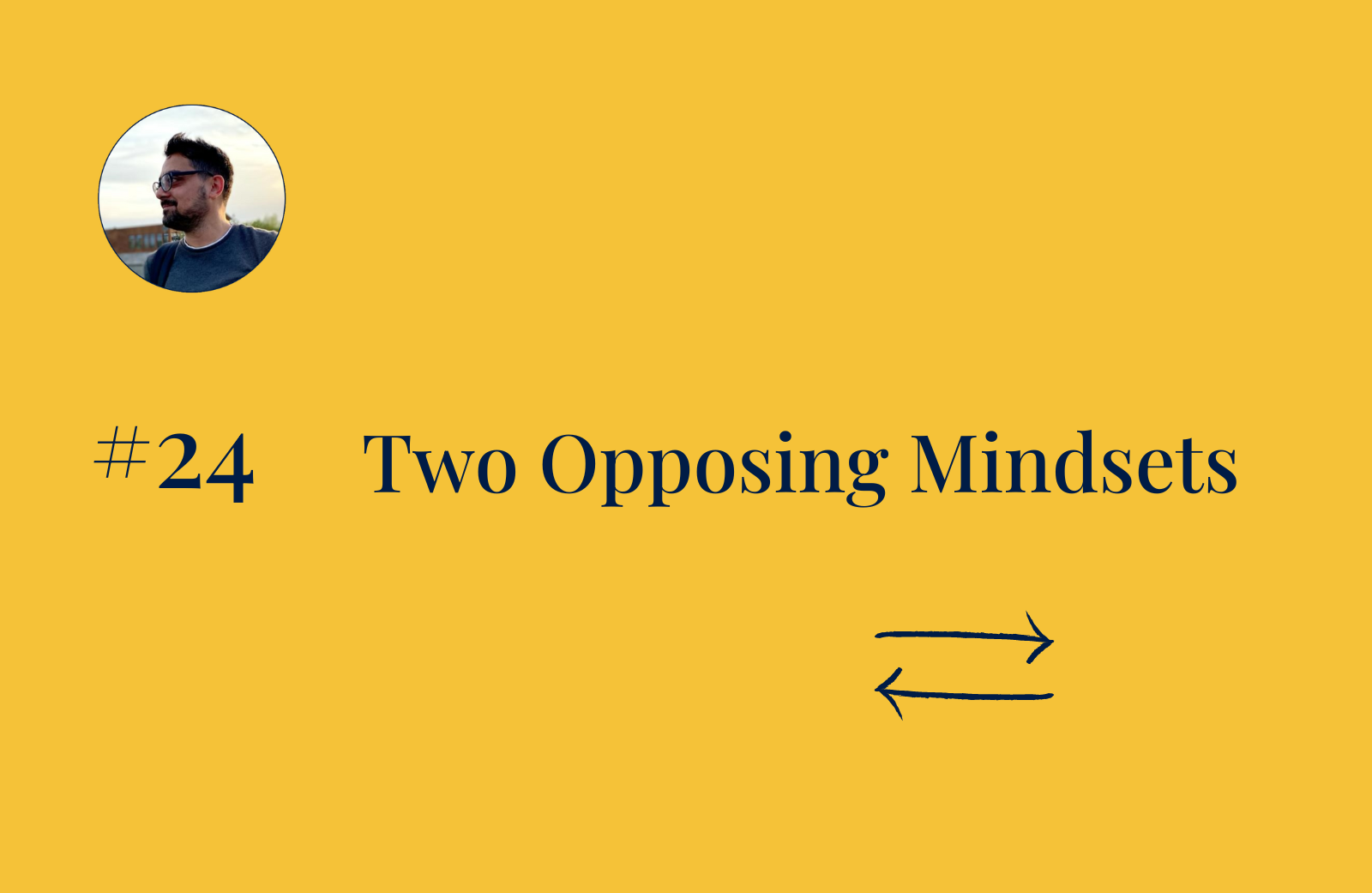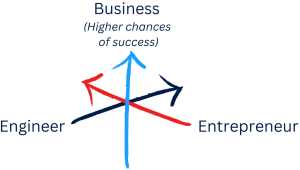
25 Sep The Battle Between Software Engineer and Entrepreneur
Sep 25, 2024
If you are a software engineer or a technically-inclined individual, it is highly probable that when working on a technical task (or any task that involves building a product), you would appreciate having at least one, if not all, of the following resources:
- Time: Enough time to think of the best way to solve the task – ideally, an infinite supply;
- A High Tolerance to Delays for Perfection: You would want the business owners, who are monitoring your work, to understand that you might need to rebuild (or rewrite) the entire solution from scratch if necessary. Also, they should tolerate lengthy delays for the sake of code optimisation, writing tests and documentation, and all of this with a high level of perfection.
However, the reality is that we do not have an infinite amount of time and things cannot be perfect. Consequently, we are forced to position ourselves within a limited timeframe, and of course, to increase our productivity in order to provide a high quality within the limited time we have.
We all know that if we cannot achieve either of these two things, we are very likely going to be fired.
The key point I’d like to emphasise here is that the technical mindset of engineers is to demand more time. This is the direction they naturally gravitate towards.
On the other hand, managers, product owners, and customers need a high-quality product ASAP, which creates a force opposing the natural desire of the engineer to have an abundance of time and resources to build what they are working on.
The natural desire of the engineer and the market force pushing in opposite directions intersect at a point where both factions, either verbally or tacitly agree to form a symbiosis. This is exhibited as the pace at which the economy operates.
Becoming An Entrepreneur
Now, let’s say you’re an engineer who resigns from your job and starts your own business.
What happens here is that you enter a new field that requires a different mindset and skill set, but you still have the mindset of an engineer who, as we’ve already established, naturally wants more time and resources than what the market provides.
You have two options:
- Continue following your old instincts and spend as much time as you like perfecting your product. There are no superiors to impose limits on you, so you are free to do as you please. Later, when you’ve completed your product, you can hope that all the money, time and effort that you have invested will pay off by finding at least one customer.

- The second option requires you to adopt the role of a business owner. This is a person who understands that there is a scarcity of time, money and resources. By recognising this, the business owner mindset you need to develop will create a force that opposes the natural desire of the engineer, which, in truth, is you.

To summarise.
When transitioning from being an engineer to an entrepreneur, we must cultivate two contradicting forces within us, colliding at a point where the odds of business success are highest.
How Do We Achieve That?
The best teacher is empirical experience – try, learn, repeat.
However, if I were to distil all this down to a few simple steps, those would be:
- Realise that the market (the customer) needs your product ASAP and you simply don’t have enough time.
- Recognise that in terms of resources, you are most probably limited.
- Based on the aforementioned realisations, set limits for yourself – establish deadlines and a strict plan.
- Stick to the plan and deadlines, and resist the temptation to allow emotions and other temptations to sway you and alter the plan. Remember, you are now an entrepreneur and you must enforce limits on yourself, the way somebody else did for you.
Being your boss doesn’t mean that you can do whatever you want. Being your boss means increasing the level of responsibilities you can handle and applying them firmly to yourself.
